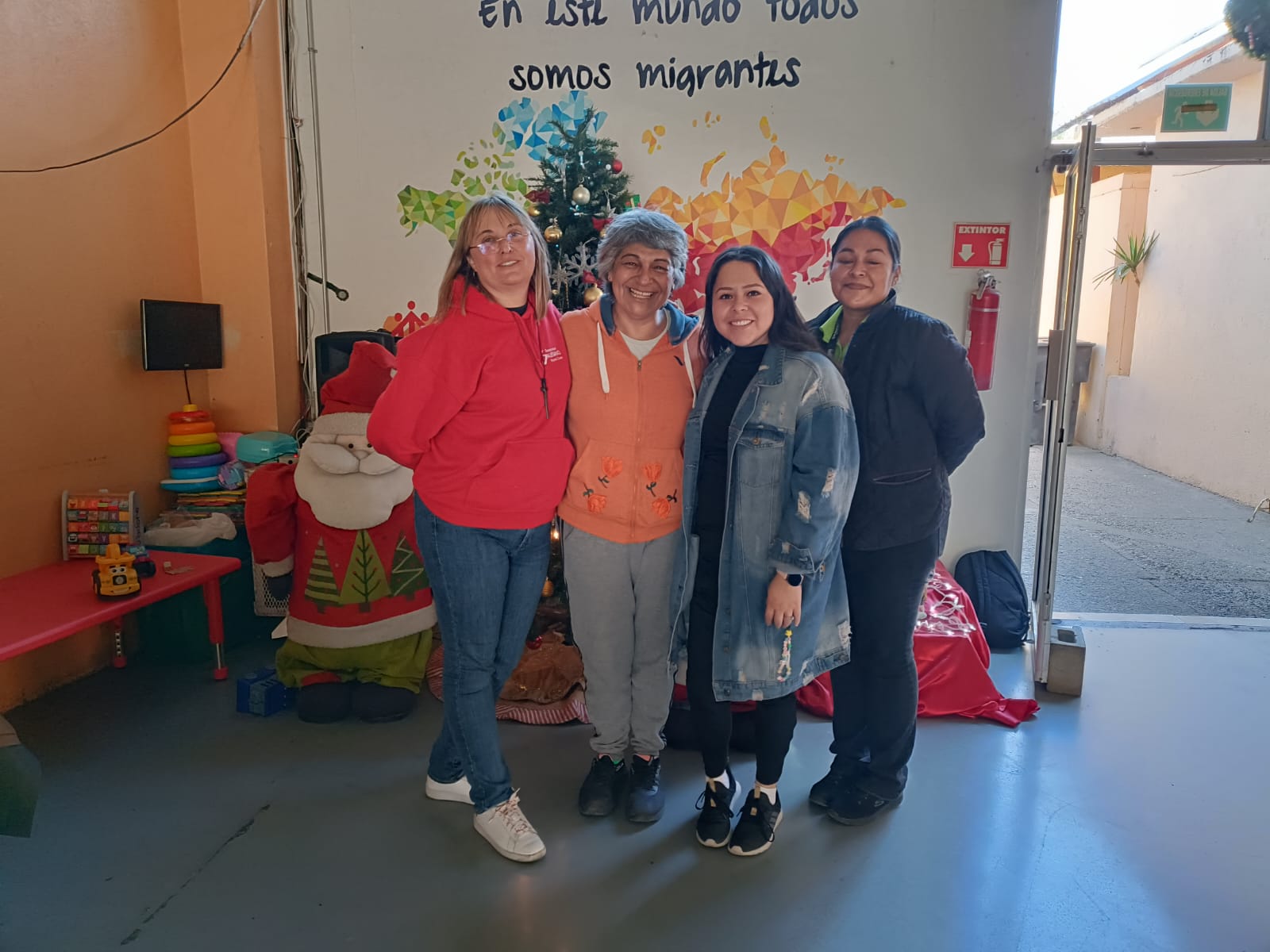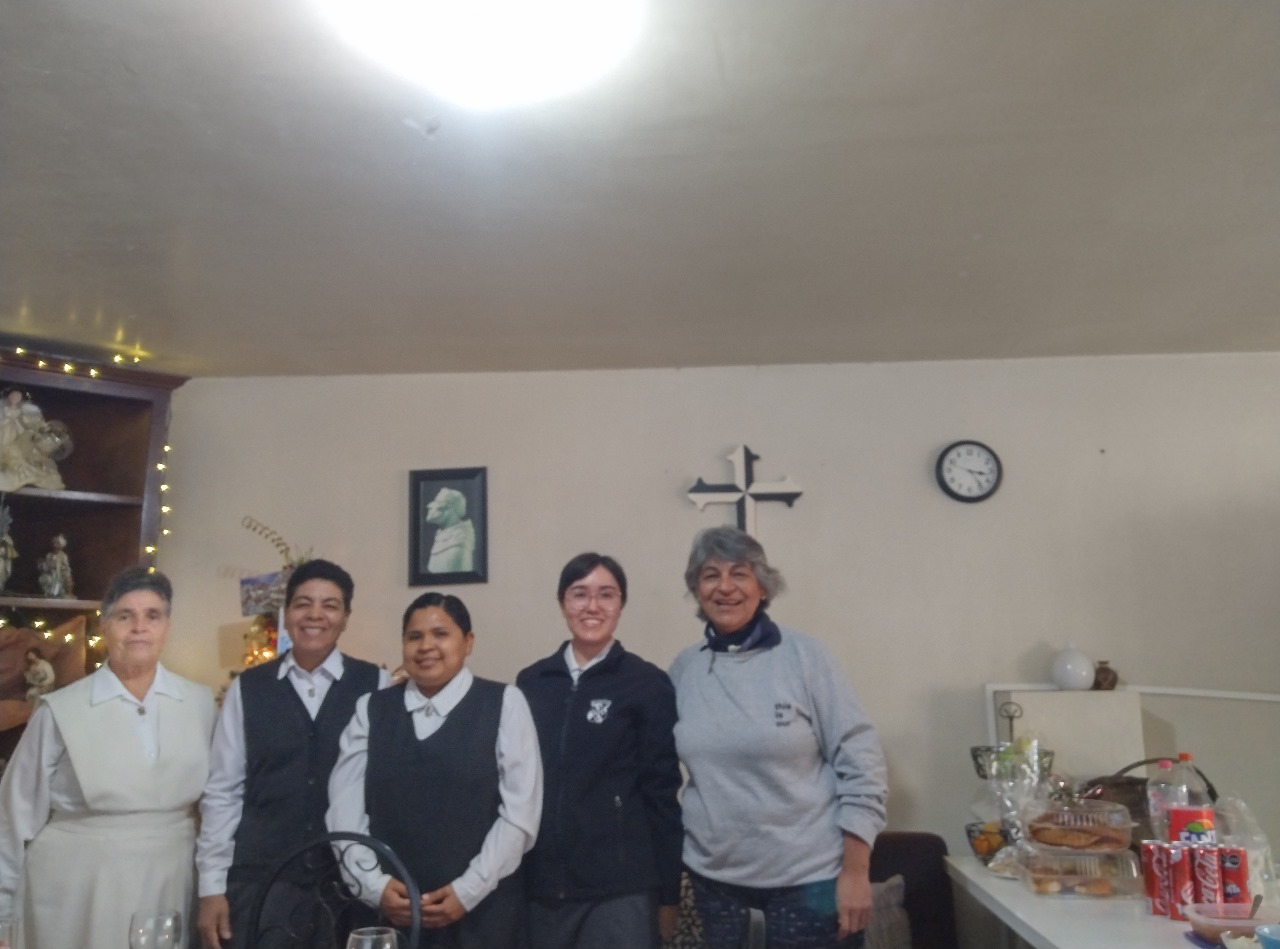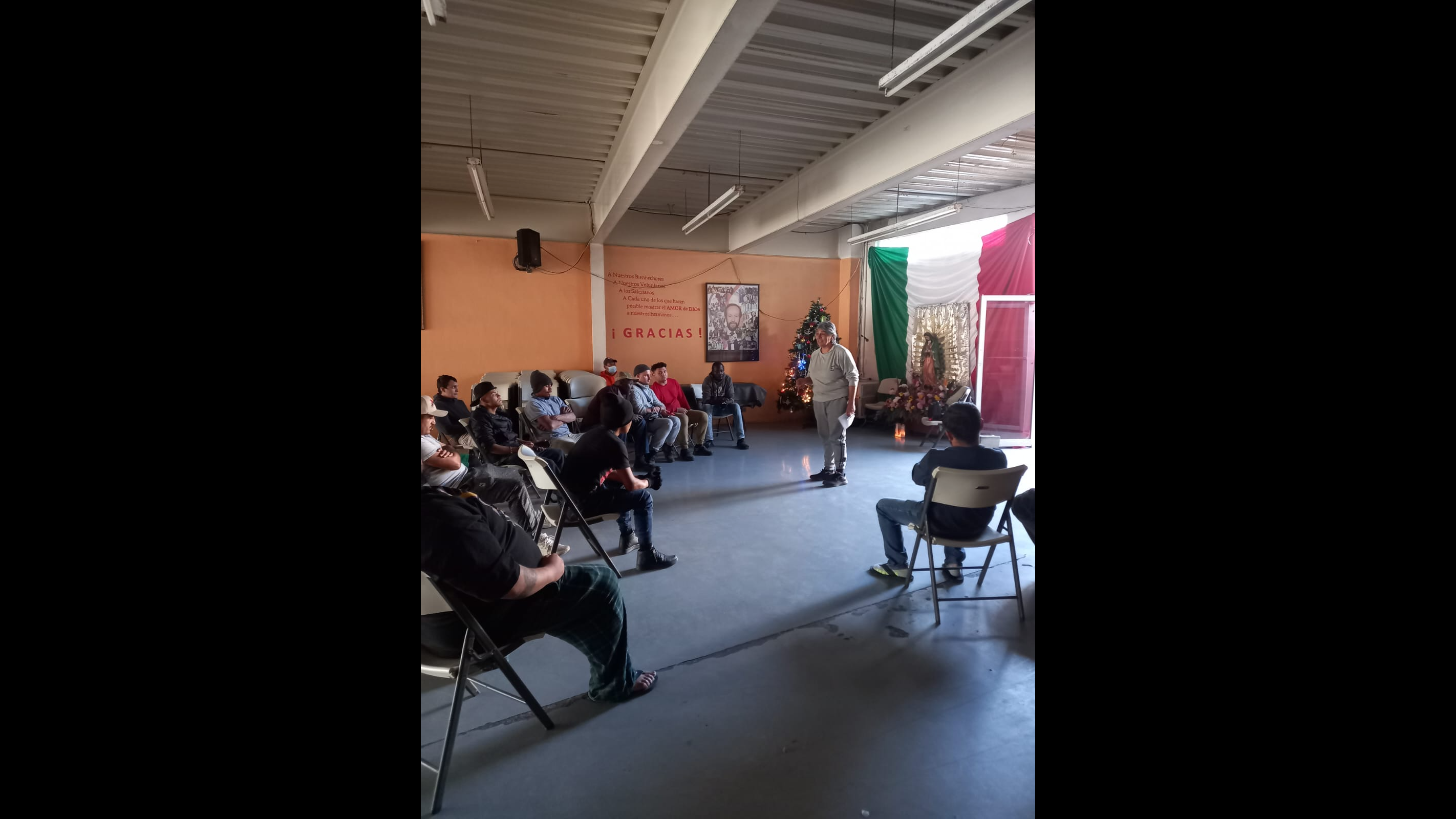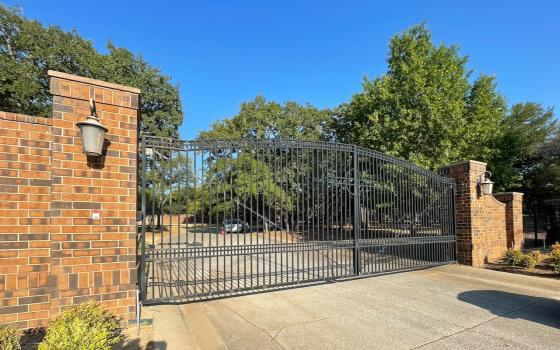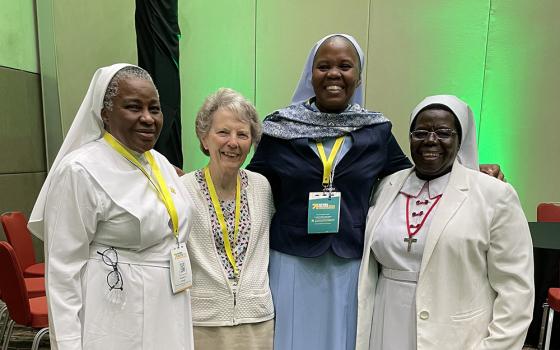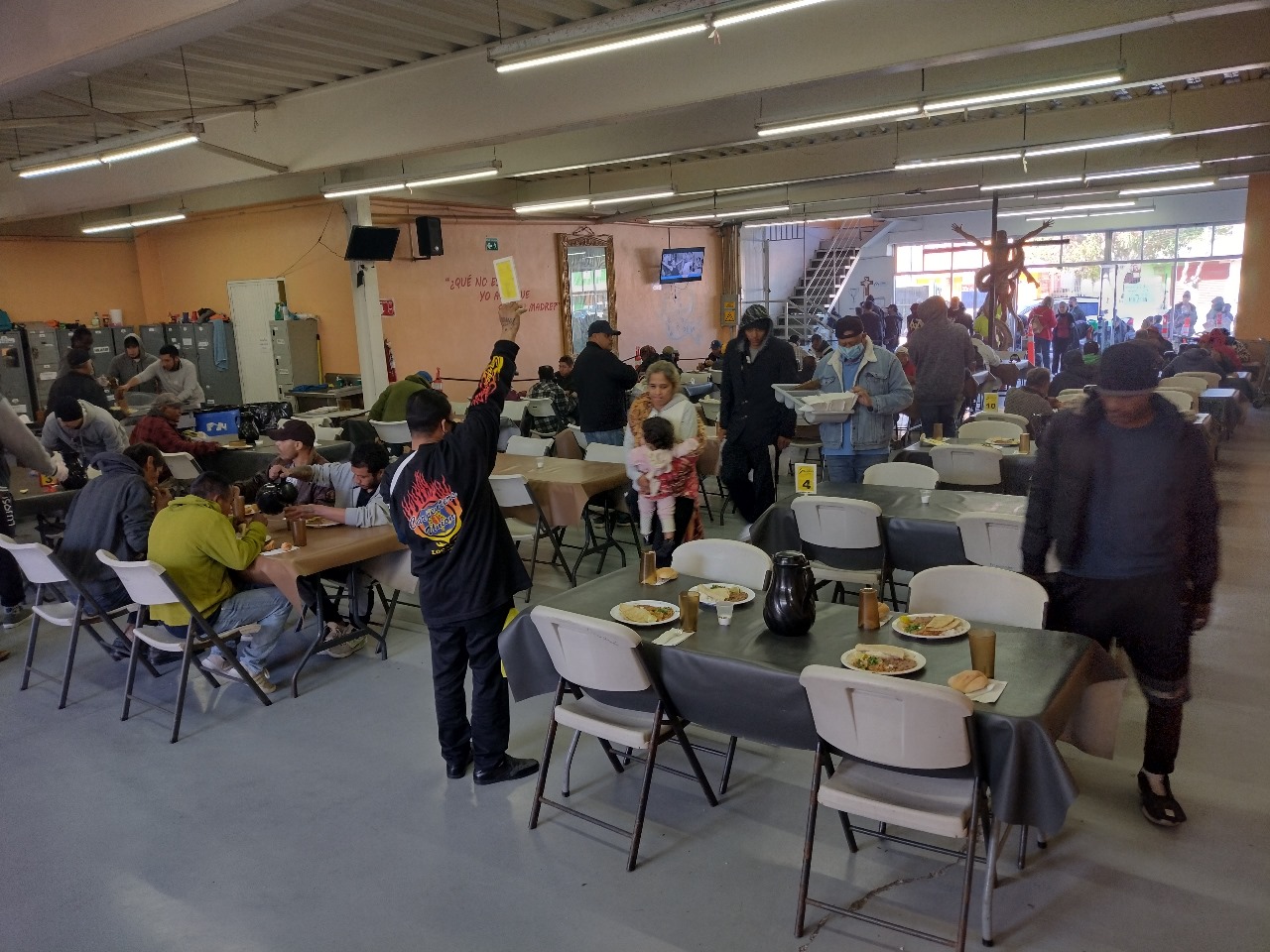
During mealtime at Desayunador Padre Chava, a migrant holds up a numbered sign, signaling an open table for others to join. (María Alejandra Leguizamón)
"He saw our misery, our weariness and our oppression and brought us out of Egypt by the might of his hand and the strength of his arm, amid great terror, signs and wonders" (Deuteronomy 26:8).
The book of Deuteronomy depicts how God observes the suffering of people and leads them away from the terror and anguish caused by violence. The essence of God's justice lies in caring for the lives of those who suffer and protecting the helpless.
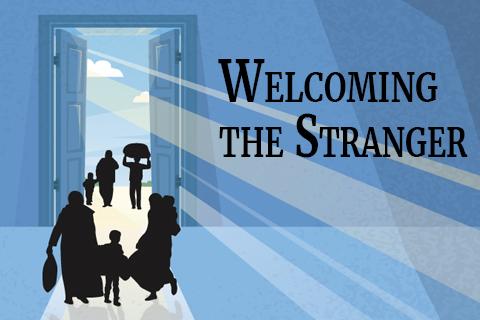
To nurture life, it is essential to learn how to work in teams and coordinate tasks. Religious life in the church lives and celebrates the gifts bestowed by the Holy Ruach to read and interpret the signs of the Kingdom of God. Therefore, the charisms serve as expressions of the love of mercy and compassion for the creation that groans in labor pains.
The Desayunador Padre Chava in Tijuana is a haven of welcome and protection of dreams, where every individual who arrives experiences, shares and envisions a world that is more just, warm and fraternal.
Conversations among Dominican sisters
The proposal to conduct an intercongregational experience had two main goals. First, it prompted a dialogue among Dominican sisters. We are confederated at the Latin American level, sharing spaces for training, education and collaborative reflection on themes and contexts related to our pastoral duties. This facilitated our meeting and discussions regarding the execution of this experience. Second, our aim was to connect with sisters and brothers volunteering to support migrants at the border.
The Dominican Sisters of Christian Doctrine, a native congregation of Mexico founded 75 years ago, celebrated their jubilee year last year. The Dominican Sisters of the Most Holy Name of Jesus, the congregation to which I belong, was founded 136 years ago and were natives of Argentina. In our faith, we attribute it to providence because God has seen and prepared the way. We initiated communication to coordinate the trip and understand the challenges that the church and society are facing at the border.
Upon arriving in Tijuana, Mexico, my initial destination, it was a time to acquaint myself with the surroundings. I lived alongside four sisters who were part of the community. We established regular life schedules and engaged in some shared activities.
Encounters with a blended family
El Desayunador del Padre Chava is a project affiliated with the Salesian Congregation, providing breakfast to over 1,000 people from Monday to Saturday. Additionally, three days a week, both men and women are offered the opportunity to take a hot shower and receive a change of clothes.
This facility also serves as a shelter for approximately 70 men who are awaiting an appointment from the U.S. consulate to cross the border and pursue the "American dream." For others, it's a transient space after facing deportation. Some have managed to find employment, enabling them to cover the expenses during this waiting period.
At this breakfast center and shelter, I was responsible for assisting women, girls and boys who wished to shower and change clothes. My colleagues in this effort were Eleazar and Aarón, who managed the laundry duties and also handled the donated clothes that arrived.
Advertisement
The day-to-day operations were coordinated by a group of laywomen with Salesian spirituality. Claudia, the general coordinator, oversaw various projects in Tijuana and visited the guests daily, ensuring the smooth functioning of the facility. Angelica and Maria Alejandra served as the permanent coordinators of the breakfast center.
I had the opportunity to witness the organization, respect and affection evident in every task carried out at the facility. Juan de Dios served as the receptionist, demonstrating great dedication in attending to each person arriving for breakfast. He guided them on handwashing before meals and set boundaries for people with behavioral issues. The team was rounded out by shelter residents, who formed work teams responsible for food preparation, table service, cleaning and utensil collection.
Establishing a welcoming and friendly space in a backdrop of violence, exclusion and death becomes a "piece of heaven," providing a haven where strength is regained to persevere on the chosen path. The Desayunador Padre Chava in Tijuana is a haven of welcome and protection of dreams, where every individual who arrives experiences, shares and envisions a world that is more just, warm and fraternal.
Together with the Dominican Sisters, with whom I shared my experience in Tijuana, and the Salesian laywomen who revealed the face of Jesus in each migrant, we have formed a family that nurtures the hope of belonging to a world where there is a place for everyone.
This story was originally published in Spanish on March 8, 2024.

